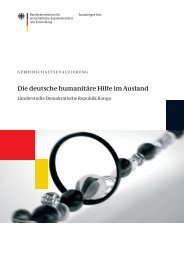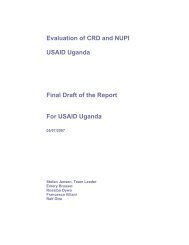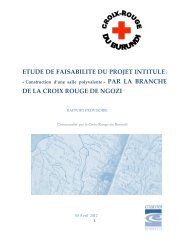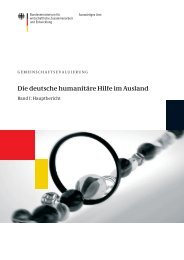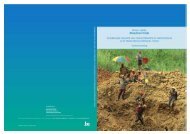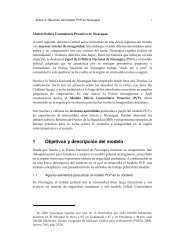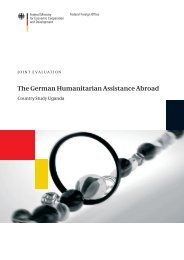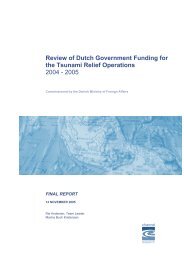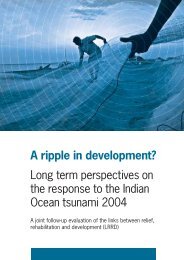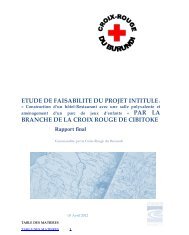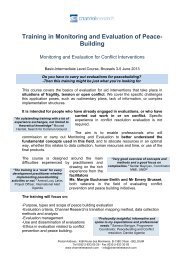Amani Labda - Peace Maybe Joint Evaluation of Conflict - Channel ...
Amani Labda - Peace Maybe Joint Evaluation of Conflict - Channel ...
Amani Labda - Peace Maybe Joint Evaluation of Conflict - Channel ...
Create successful ePaper yourself
Turn your PDF publications into a flip-book with our unique Google optimized e-Paper software.
JOINT EVALUATION OF CONFLICT PREVENTION AND PEACE BUILDING IN DRCVOLUME 1Paradoxically, by discouraging foreign investment, which perceives great riskfrom these informal network towards its own reputation, the DRC is missing outon an important opportunity for development—a type <strong>of</strong> development throughemployment that would respond to the needs <strong>of</strong> ex-combatants, for instance.Whereas large-scale industrial mining may not lend itself sufficiently to the scale<strong>of</strong> employment necessary in eastern Congo, it can be encouraged to allow forsocial investments <strong>of</strong> a more sustainable nature than aid projects that only have ashort time horizon.The control <strong>of</strong> mine sites and the trade chains associated with it continues to bedenounced as one <strong>of</strong> the principal drivers to on-going armed group mobilisationin North and South Kivu.Rupture in political dialogue: Great hopes were placed in the peace process as thepath towards greater stability, democratic rule and the improvement <strong>of</strong> livingconditions. Few <strong>of</strong> these expectations have been met, affecting a population thatremains nonetheless pr<strong>of</strong>oundly patriotic. Since the start <strong>of</strong> the various peaceinitiatives for eastern Congo, state services have not contributed to a reduction inviolence nor have they supported efforts for development, peacebuilding andreconciliation.Since 2003, the progressive return <strong>of</strong> the state has not seen the dissipation <strong>of</strong> rentseekingpractices 46 . Beyond confirming the existence <strong>of</strong> a central state (which isaccepted by the vast majority <strong>of</strong> Congolese), national elections had a limitedimpact on governance. In North and South Kivu, political dialogue at theprovincial level is absent. Provincial assemblies suffer from members’ lowcapacity and high corruption levels.Since 2003 in Ituri, attempts were made to restore the administrative apparatusand improve the justice system, but in the absence <strong>of</strong> competencies and resources,this administration has not met its principal objectives. At the local level, theadministration is largely absent and incapable <strong>of</strong> responding to population needs,with a glaring lack <strong>of</strong> resources; in contrast, administrative positions are soughtto increase personal benefit.Another problem in Ituri, a district and not a province, is the decentralisationprocess. Whereas at the provincial level decentralisation entails a transfer <strong>of</strong>power, responsibilities and resources to the “chefferie”, the districts remain “deconcentrated”administrative entities with limited financial autonomy. Suchunequal distributions <strong>of</strong> powers cause tensions between the various levels <strong>of</strong>bureaucracy. The new 2006 constitution envisages that Ituri will become its ownprovince as part <strong>of</strong> the decentralisation process, yet the current administrative46 See also Raeymaekers, T., Sharing the spoils : the reinvigoration <strong>of</strong> Congo’s political system, Politorbis,2007.



